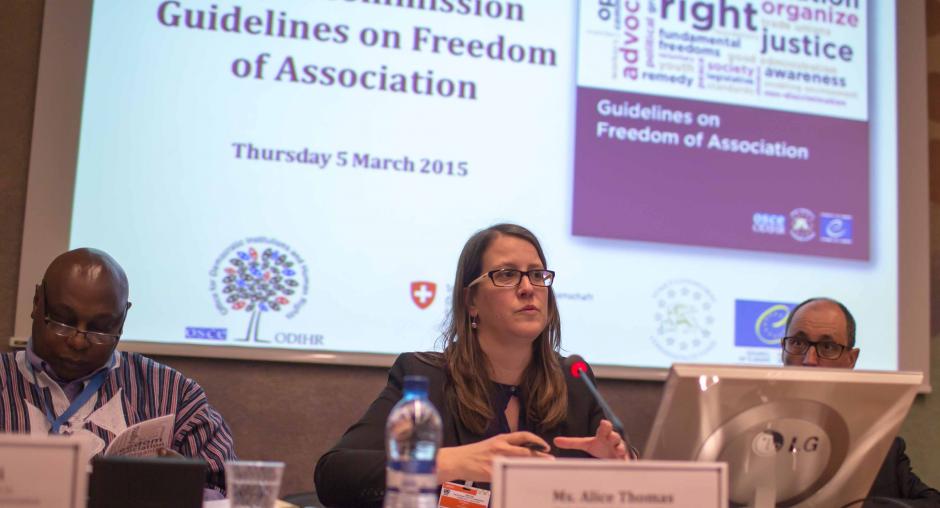OSCE/ODIHR and Venice Commission launch guidelines on freedom of association

The OSCE Office for Democratic Institutions and Human Rights (ODIHR) and the Council of Europe’s Venice Commission, launched a new human rights publication offering advice and expertise on how to legislate on and advocate for freedom of association on the margins of the UN Human Rights Council session in Geneva on 5 March 2015.
The Guidelines on Freedom of Association are aimed at providing practitioners, including lawmakers and civil society organizations, with recommendations on treating freedom of association-related matters in a manner consistent with international standards and OSCE Commitments, while also referring to good practice examples from individual states.
“In all of their different forms, including interest groups, trade unions and political parties, associations are crucial elements of a vibrant democratic state,” said Michael Georg Link, ODIHR Director. “Legislation that affects the right to freedom of association should enable the operations of associations, promote their establishment and existence, and facilitate their aims and activities.”
Participants in the event, hosted by the Swiss Government, discussed recent trends and challenges in the area of freedom of association and how the Guidelines address them, contributing to the creation of enabling legal frameworks for the freedom of association.
“In a well-functioning democracy, there should be no impediments to the freedom of association,” said Gianni Buquicchio, President of the Venice Commission. “In a truly democratic society, the authorities have to be led by the presumption that associations and NGOs act lawfully and can only impose those requirements – such as registration – that are strictly necessary to protecting public order.”
The Guidelines were developed within the framework of the Freedom of Association Project, as part of ODIHR’s mandate to support OSCE participating States in implementing OSCE human dimension commitments on freedom of association.
